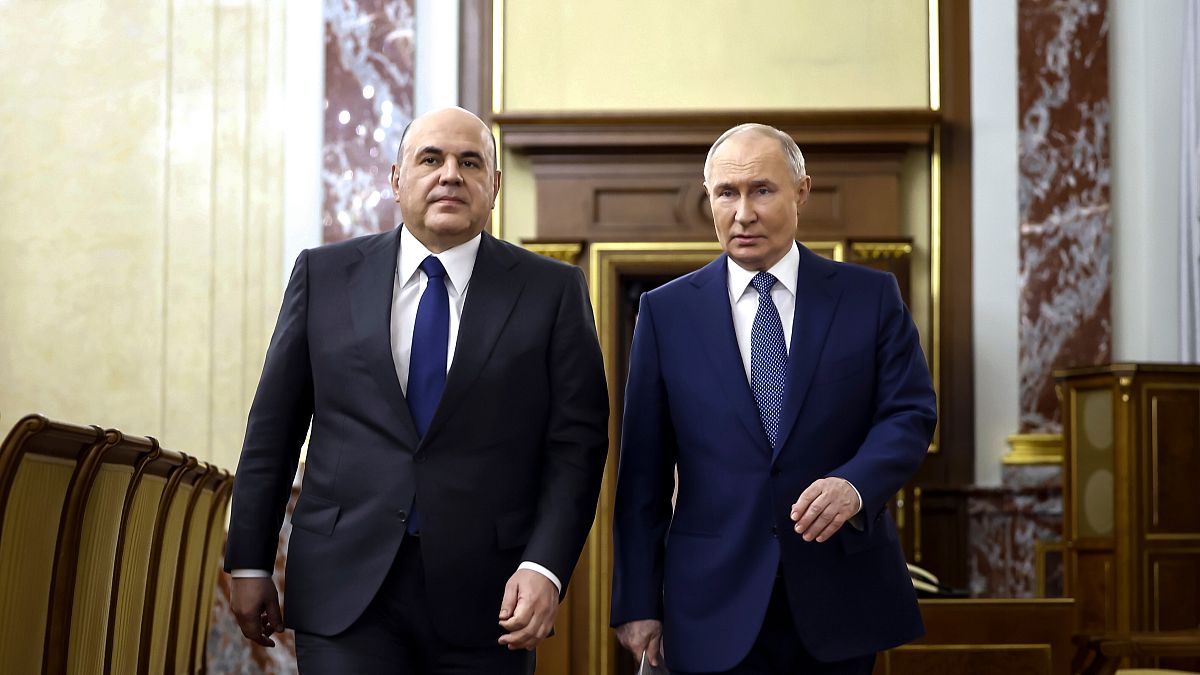In a rubber-stamp exercise following an election that excluded genuine opponents, Russian legislators are set to approve a new Putin cabinet. Vladimir Putin has reappointed Mikhail Mishustin as the country’s prime minister, a technocrat who has maintained a low political profile during his four-year tenure. Most other cabinet members are expected to retain their positions, except for Defence Minister Sergei Shoigu whose fate remains uncertain. Mishustin, who previously headed Russia’s tax service, has been praised for overseeing a stable economic performance despite Western sanctions imposed after Russia’s invasion of Ukraine in 2022.
Following constitutional changes in 2020, the lower house of the Russian legislature approves the prime minister’s candidacy, who then submits cabinet members for approval by legislators. Despite the intended purpose of granting parliament more power, the process is often seen as pro forma due to the tight control the Kremlin wields over the legislature. While it is anticipated that most cabinet members will retain their roles, the future of Defence Minister Sergei Shoigu is unclear following the arrest of his top associate, Timur Ivanov. Shoigu came under heavy criticism for the Russian military’s early setbacks in the fighting in Ukraine and faced calls for his removal by influential figures such as Yevgeny Prigozhin of the Wagner mercenary group.
The arrest of Timur Ivanov, who was considered a close associate of Shoigu, has once again raised questions about the defence minister’s position. Shoigu had managed to strengthen his position following Prigozhin’s death in a plane crash, believed to be orchestrated by the Kremlin in retaliation for the attempted rebellion led by Prigozhin. Despite this, speculation surrounding Shoigu’s vulnerability has resurfaced with Ivanov’s arrest. The role of Defence Minister is crucial, especially during times of conflict and geopolitical tensions, making Shoigu’s future an important aspect of the upcoming cabinet approval process.
Mikhail Mishustin, the reappointed prime minister, and other technocrats in the cabinet have been commended for their role in maintaining Russia’s economic stability in the face of Western sanctions. Mishustin’s focus on economic management rather than making political statements has been seen as a positive approach to governance. His track record of steering clear of media interviews and political rhetoric has earned him a reputation for efficiency and technocratic leadership. The continuity in the cabinet’s composition, with most members expected to remain in their current roles, signals a sense of stability and consistency in Russia’s leadership.
The upcoming approval of the new Putin cabinet by Russian legislators is expected to be a formality, given the Kremlin’s control over the legislative process. The reappointment of Prime Minister Mikhail Mishustin, along with the likely retention of most cabinet members, reflects a preference for continuity and technocratic governance. While the fate of Defence Minister Sergei Shoigu remains uncertain following the arrest of his associate, the overall composition of the cabinet is likely to remain intact. The focus on economic stability and effective governance in the face of geopolitical challenges underscores the importance of leadership in maintaining Russia’s position on the global stage. As the approval process unfolds, attention will be on the dynamics within the cabinet and any potential changes in key ministerial positions.










